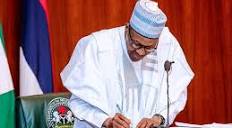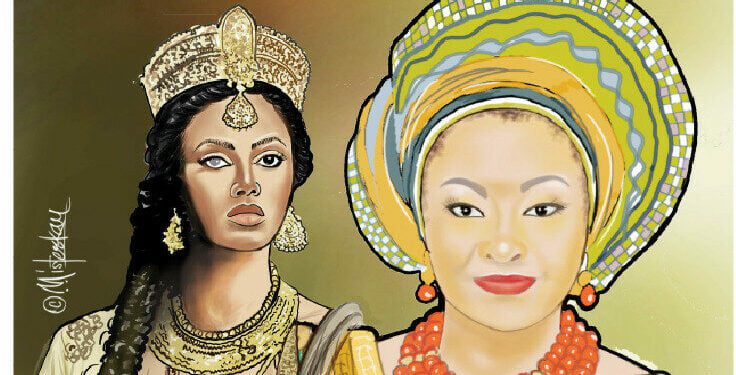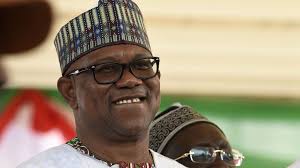By Ola Awoniyi
The happy ending of Electoral Act No.6 2010 (amendment) Bill 2022, which was signed into law by President Muhammadu Buhari on February 22 after much apprehensions, reminds one of the Petroleum Industry Bill, aka PIB.
For almost two decades, the PIB was at the National Assembly, during which time it changed in shape and contents, and became an enigma too difficult for the parliament to handle. It took Ahmad Lawan’s Ninth National Assembly to deliver the bill from its “demons” and get the President to sign it into law, ending decades of frustration. Today, we now have the Petroleum Industry Act 2021.

Like the PIB, the electoral reform bill had been languishing at the National Assembly since 2017. It was eventually passed in November 2021, amid noise on the mode of transmission of election results.
But President Buhari declined assent to the bill and instead sent it back to the National Assembly in December 2021, precisely on the eve of the commencement of the lawmakers’ Christmas and New Year recess.
That was not the first, second or even the third time of its forth and back movement within the Three Arms Zone of Abuja.
The same bill was denied presidential assent thrice during the Eighth Assembly, a casualty of the frosty relationship between the Executive and that Assembly.
It is therefore good news for Nigerians and lovers of democracy that the President finally signed the bill into law on Friday, 25th February, 2022, marking the fourth time the electoral law was repealed and re-enacted since the return to democracy in 1999.
However, the back and forth movement of the bill this time around, before the eventual presidential assent on Friday, is significant for how it underscores the beauty of democracy and the health of that system in Nigeria.
While appending his signature, President Buhari said “the current bill comes with a great deal of improvement on the previous Electoral Bill 2021…From the review, my perspective is that the substance of the bill is both reformative and progressive.”
The successful birth of Electoral Act 2022 thus provides another opportunity to appraise the Ninth National Assembly and its responsiveness to the yearnings of the Nigerian people.
It has been exciting watching and listening to even the most critical civil society groups in the country applauding the National Assembly for a job well done and President Muhammadu Buhari for finally assenting to the bill.
There have always been very interesting comments about the Ninth National Assembly under Ahmad Lawan. Some of them have been complimentary, taking into account the many jinxes it has broken to improve the Nigerian legislative environment. Some try to put things in perspective, noting the high and the low points.
But some others have been deliberately venomous. To this category of public commentators, the Ninth Assembly is a rubber-stamp and has done no good. Some of them go as far as calling for it to be scrapped, forgetting that parliament is the fulcrum of democracy. In fairness to them, their dark view of parliament is not a recent or sudden affliction. They also had nothing complementary to say about the previous Assemblies.
However, this piece is not a specific response to the views of any of the stated tendencies. Rather, it is to record the extent this Ninth Assembly under Ahmad Lawan has gone to deliver an electoral law that for the first time in our recent history arrived to almost universal applause.
To start with, the Ninth Assembly made the electoral reform bill a top priority in its Legislative Agenda, which was launched at its inception in 2019. This decision was not just informed by the importance of the bill to the integrity of our electoral process and democratic governance. The lawmakers were also determined to avert a repeat of what happened to the bill in the previous dispensation.
The bill, which essentially was an amendment to the law made in 2010, suffered a monumental setback on about the eve of the 2019 polls, largely due to the cat and mouse relationship between the Executive and the Eighth Assembly. That era was characterised by distrust between the two arms of government. The rest is now history.
This time around, everything was done by the National Assembly to ensure the bill passed and assented to. But nobody anticipated that its passage would be this dramatic and exciting.
The drama notwithstanding, the entire process projected the Ninth Assembly as an institution that rose above the ego and political, sectional and other sentiments of its members to do the will of the people they represent.
Some observers may probably find it difficult to agree with this view. That is expected. But I stand to be corrected.
From the moment the Executive sent the bill to the National Assembly, work began in earnest. At a point, members of the public became uneasy at the length of time it took the relevant parliamentary committees to report back to plenary for the clause-by-clause consideration of the bill by each of the two Chambers.
It was during that clause-by-clause consideration that the first hurdle showed up. This had to do with the mode of transmission of result.
The drama was gripping in both Chambers. At some point, the House of Representatives had to adjourn sitting to invite experts to elucidate on the subject matter.
The Senate too was not spared of drama. Calling for a division to determine issue is provided for in the standing rules but this is rarely invoked. This time, in the midst of tension, it was invoked by the Senate Minority Leader, as his last card. But it failed to achieve the intended result.
Both Chambers eventually scaled through the hurdle after rowdy sessions. The contending parties and interested members of the larger society heaved a sigh of relief, thinking the matter had been resolved before the parliament adjourned on Sallah recess. But the feedback from the Nigerian people would not allow the lawmakers to rest until there was a recomittal of the bill immediately after they returned from recess.
The Senate had to adjust its earlier position on some clauses and also concur with the House, especially on the modes of transmission of election results and primaries by political parties.
The Senate had initially voted Direct or Indirect mode of primaries but was persuaded by the House to limit it to only one option by deleting the indirect option. They had thought that would deepen democracy but some Nigerians saw it as self-serving.
President Buhari too felt it was unfair to deny political parties options for their primaries. For this reason in particular, Buhari withheld his assent and sent the bill back to sender with explanations. That was the first time Buhari would send back a bill passed by the Ninth Assembly.
This development undoubtedly provoked fears that, with electoral reforms, history was about to repeat itself. Political pundits were sure that the bill was destined for a second death. The insinuation was that the APC-led Federal government was afraid of electoral reforms that feature electronic transmission of results.
But this Assembly had a promise to keep. All that was needed was further consultations with the Nigerian people. This they did during the Christmas and New Year recess.
On their return from the recess, the lawmakers amended the bill to provide three options by which the political parties can conduct their primaries.They went a step further by prescribing how to conduct each mode of the nomination process to forestall possible abuse.
For the Senate, that was about the third time of shifting position to get the bill passed. This was a clear demonstration that the Ninth Senate and indeed the Ninth Assembly are people-centred in their primary responsibility which is law-making.
They have demonstrated flexibility, sensibility and sensitivity to the yearnings of the people they represent. It is this approach to their national assignments that has now given the country a new Electoral Act ahead of the 2023 polls. For the Ninth Assembly, this is a promise made and promise kept.
President Buhari too has demonstrated good faith by appending his signature to the bill despite his reservations about a particular clause that affects political appointees. Buhari did not hide his discomfort about an aspect of clause 84 of the new Electoral Act which bars political appointees from voting as delegates or being voted for at a convention or congress of political parties for the purpose of nominating candidates for any election.
Buhari’s observation that the provision, in his opinion, contradicts the provisions of the Constitution, would have been enough reason for him to withhold assent again. But he opted against that, due to the cordial relationship between the National Assembly and the Executive.
It is however very doubtful that the avowed critics of the present dispensation will see it this way. It is on record that Buhari acted in the same manner on the Petroleum Industry Act 2021 and the 2022 Budget.
Here is precisely what the new Electoral Act 2022 says on interesting issues like voting devices, mode of transmission of election results, mode of selection of nomination of candidates by political parties and the fate of serving political appointees:
Ballot boxes and voting devices:
Clause 41:
(1) The Commission shall provide suitable boxes, electronic voting machine or any other voting device for the conduct of elections.
(2) The forms to be used for the conduct of elections to the offices mentioned in this Act shall be determined by the Commission.
(3) The Polling agents shall be entitled to be present at the distribution of the election materials, electronic voting machine and voting devices from the office to the polling booth.
(4) Polling agents who are in attendance at a polling unit, may be entitled, before the commencement of the election, to have originals of electoral materials to be used by the Commission for the election inspected, and this process may be recorded as evidence in writing, on video or by other means by any Polling Agent, accredited observer or official of the Commission.
(5) A Polling Agent who is in attendance at a polling unit, may observe originals of the electoral materials and this may be recorded as evidence.
(6) The Commission shall, before the commencement of voting in each election, provide all election materials for the conduct of such election at the polling unit.
Clause 50(2): Subject to section 63 of this Act, voting at an election and transmission of results under this Act shall be in accordance with the procedure determined by the Commission.
Nomination of candidates by parties:
Clause 84(2): The procedure for the nomination of candidates by political parties for the various elective positions shall be by direct, indirect primaries or consensus.
Consensus Candidate:
Clause 84(9):
(a) A Political Party that adopts a consensus candidate shall secure the written consent of all cleared aspirants for the position, indicating their voluntary withdrawal from the race and their endorsement of the consensus candidate.
(b) Where a political party is unable to secure the written consent of all cleared aspirants for the purpose of a consensus candidate, it shall revert to the choice of direct or indirect primaries for the nomination of candidates for the aforesaid elective positions.
(c) A Special Convention or nomination Congress shall be held to ratify the choice of consensus candidates at designated.centres at the National, State, Senatorial, Federal and State Constituencies, as the case may be.
Political Appointee not Eligible as a Voting Delegate or Aspirant
Clause 84(10): No political appointee at any level shall be a voting delegate or be voted for at the Convention or Congress of any political party for the purpose of the nomination of candidates for any election.
Awoniyi is Special Adviser on Media to the Senate President




